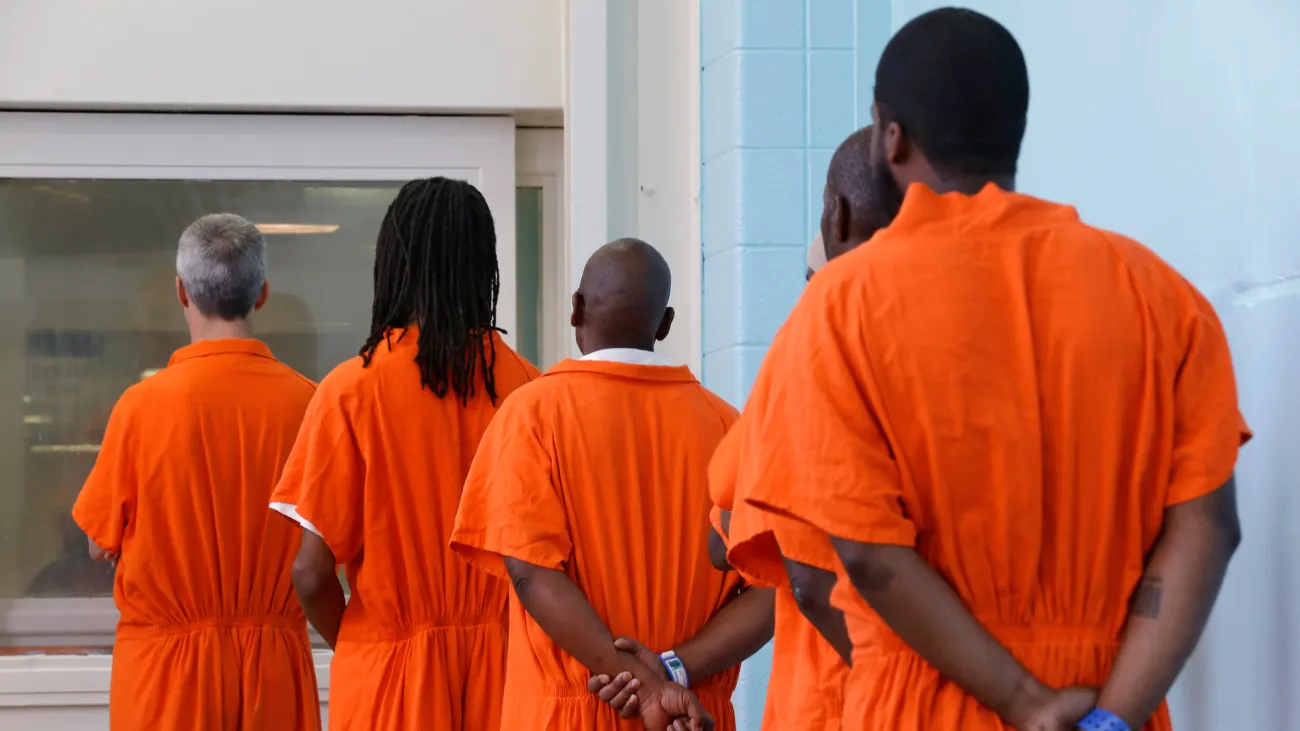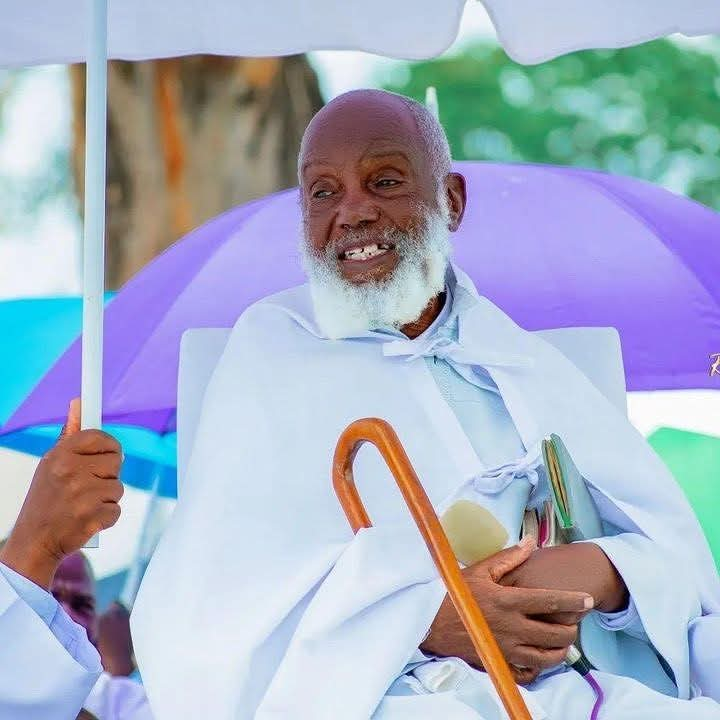Current Affairs
US prison forced labour, a silent form of slavery for Blacks

The United States government’s rhetoric about democracy often rings hollow in the South, where white supremacy remains deeply entrenched.
Democracy is a public relations strategy to cover up acts of modern day slavery in its prison system targeting incarcerated Blacks and Hispanic nationals.
Prisons in the South, over the past years have come under scrutiny and criticism for prolonging modern-day slavery through forced labor practices that disproportionately affect Black individuals.
Modern slavery roots backdate when the 13th Amendment to the US Constitution that abolished slavery.
Under this, white supremacists after slavery ban reinforced a loophole- “except as a punishment for crime,” led to exploitation to justify forced labor in prisons.
Some of the common states in the South are Texas, Florida, Georgia, North and South Carolina, Alabama, Mississippi, Louisiana, Arkansas, Tennessee, Kentucky and Virginia.
Research has shown that Black people are overrepresented especially in the South.
“Of the 12 states where more than half the state prison population is Black, nine of these states are in the South,” (The Sentencing Project 2022) revealed.
It further stated that the incarcerated population in the South is primarily and disproportionate “Within state and federal prisons, Black men are more likely to be assigned work in lower-paid or unpaid agriculture and prison.”
Incarcerated people of colour in the South are subjected to low wages are often paid minimal wages, ranging from USD0.04 to USD 2.00 per hour, for their labor.
While in states, like Alabama, Arkansas, Florida, Georgia, Mississippi, South Carolina, and Texas, do not pay prisoners for their labour.
In some instances prisoners are often forced to work under threat of punishment, including solitary confinement or denial of privileges.
Under these conditions Black people are more likely to be incarcerated and forced into labour due to systemic racism and biased policing practices.
At the end of the day the prison labour system exploits Black labour for profit, reinforcing racial disparities and inequality.
Under this system, the South has generated billions of dollars.
Harare-based political commentator Mr Naboth Dzivaguru said the US government is famously known for its sham adherence and the rule of law.
He added that the government has a reputation for indicating right whilst turning left.
US is famously known for its sham adherence to the tenets of democracy and the rule of law.
It is known for indicating right whilst turning left.
“The country is known for poor labor laws and ethics.
“It thrives on cheap labour and this is why it has resorted to modern-day slavery on blacks confined in their prisons.Its main concern or aim is to make profits notwithstanding the route taken to achieve results.
“It is a polite hypocrisy that should be exposed to the extreme and to the full glare of the world,” said Mr Dzivaguru.
Over the past years a crop of lawmakers in the US have called for the abolishment of 13th Amendment’s loophole to end forced labor.
While others have called an end to forced labour an immediate increase on wages and creation of better working conditions.
A paper by Sawyer and Wagner 2024, revealed that nearly 2 million people are confined in state and federal prisons, county jails, juvenile and immigrant detention and other confinement facilities.
ACLU and GHRC 2022 report stated that of the 1. 2 million people incarcerated in state and federal prisons, nearly 800 000 are prison labourers, most of them by force.
80 percent of them are employed in facility and maintenance operations, such as janitorial duties, food preparations, ground maintenance and laundry. These jobs keeps institute that enslave them to keep running.
Renowned Harare-based political analyst Derick Goto said the United States has perfected the art of double standards,loudly preaching democracy and human rights abroad while running one of the most exploitative systems of forced labour at home.
“The 13th Amendment was celebrated as the abolition of slavery yet its “exception clause” allowed slavery to continue for the incarcerated, a loophole disproportionately targeting African Americans.
He said the current US prison system, mainly in the South is not about rehabilitation but a man-made profit
making machine.
“American prisons generate billions annually, with fortune 500 companies – from agriculture to telecommunications and textiles – benefiting from this coerced labour. “Prisoners sew uniforms for the military, fight wildfires for a fraction of the minimum wage, and manufacture goods sold on the open market, yet they leave prison with no savings and no safety net.
Mr Goto said the US government exposes a democracy that is selective, exploitative, and built on the continued subjugation of Black citizens.
“Until America confronts this modern-day slavery within its borders, its lectures on democracy elsewhere remain nothing more than hollow propaganda.”
Current Affairs
Minister Rwodzi Charts Path as Sector Takes Lead in GDP Growth

Itai Mazire
Tourism and Hospitality Industry Minister Barbara Rwodzi has implored players in the sector to embrace innovation, sustainability, and stronger partnerships to safeguard Zimbabwe’s tourism gains, as the industry now leads national GDP growth ahead of mining and agriculture.
In a speech delivered on her behalf by Tourism Permanent Secretary Dr. Takaruza Munyanyiwa at the Hospitality Association of Zimbabwe (HAZ) Summit and Annual General Meeting in Harare today, Minister Rwodzi said the country stood at a “historic crossroads” following its recent listing by Forbes as the best destination to visit in 2025.
“This is a well-deserved accolade which we should celebrate and sustain going forward. Congratulations, makorokoto, amhlope to the service providers of the tourism and hospitality industry of Zimbabwe.”
The Minister applauded the sector’s resilience in the face of pandemics, economic headwinds, and climate-related shocks, noting that the spirit of Zimbabwean hospitality remains unbroken.
“We have continued to smile, to serve, and to tell our authentic story, hence reaping the rewards now,” she said.
Giving an update on performance, Minister Rwodzi reported that international tourist arrivals grew by 9 percent between January and September 2025 compared to the same period last year, with strong traffic from the Americas, Africa, and Asia.
Domestic travel also surged by 20.9 percent over the same period, while the sector generated approximately USD 922 million in 2025 a 10 percent rise from the USD 839 million recorded last year.
“These are encouraging signs that our recovery is gaining positive traction. But future-proofing requires more than recovery it demands transformation,” she said.
Minister Rwodzi outlined five pillars she said would anchor the transformation of the sector: digitalisation; sustainable and climate-resilient tourism; human capital development; infrastructure and connectivity; and stronger branding and market diversification.
“The future of hospitality is digital,” she said. “We must move from brochures to big data, from paper-based booking to smart platforms.”
She urged operators to embrace online booking systems, virtual reality tourism aids, and other digital tools that enhance visitor experiences.
On sustainability, Minister Rwodzi said protecting Zimbabwe’s natural and cultural heritage was “not an expense it is an investment in the longevity of our industry.”
The Minister stressed the need to invest in human capital, calling on operators to work closely with academia to bridge skills gaps and develop tomorrow’s hospitality innovators. She highlighted the First Lady, Dr. Auxillia Mnangagwa’s gastronomy vision as a key avenue for elevating Zimbabwe’s culinary offerings.
On infrastructural development across the country, she said it remained central to competitiveness: “A tourist’s journey begins long before they reach our front desk — it begins on a road, a runway, or a mobile network.”
Minister Rwodzi reiterated that Government is committed to creating an enabling environment, pointing to the recent reduction of tourism fees by up to 50 percent to lower operating costs.
“Future-proofing cannot be achieved by Government alone,” she said. “The private sector is the engine of creativity, investment, and service excellence.”
Her call for collaboration was anchored on an African proverb which states that, “Tomorrow belongs to the people who prepare for it today.”
The Minister said the role of HAZ remained critical as Zimbabwe eyes increased international tourist inflows.
“The world’s eyes are turning towards Zimbabwe. We have the assets, we have the people, we have the passion so why not?” she said.
“To HAZ, your role has never been more critical. You are the unified voice of the hospitality industry. Your strength lies in your collective action.”
She said the ongoing summit provided a platform to “strategise, innovate, and build consensus” as the sector pushes towards Vision 2030.
“The potential is vast. The time is now. Let us build not just an industry, but a legacy,” said Minister Rwodzi.
Current Affairs
Apostolic Church Founder Paul Mwazha Dies at 107

Zimbabwe and the wider African Christian community are mourning the loss of Bishop Paul Mwazha, the revered founder of the Apostolic Church in Africa, who passed away today at the remarkable age of 107.
Bishop Mwazha, widely regarded as one of the continent’s most influential religious leaders, dedicated his life to the growth and spiritual guidance of his church, which boasts millions of followers across Zimbabwe and beyond. His teachings, rooted in faith, discipline, and community service, have left an enduring legacy that continues to shape generations.
The Apostolic Church in Africa under his leadership became a cornerstone of spiritual life in many communities, providing not only religious guidance but also social support and education initiatives. Church leaders have called for prayers as they prepare for national and regional mourning rituals.
Further details on funeral arrangements and memorial services are expected to be released in the coming days.
Business
Zimbabwe Bets Big on Biotech to Fuel Industrial Revolution


Dr. Eng. Willie Ganda
By Enia Dube
The Minister of Higher and Tertiary Education, Innovation, Science and Technology Development, Hon. Dr Fredrick Shava, has thrown his weight behind biotechnology as a key driver of the country’s industrialisation and modernisation agenda.
Speaking at the National Biotechnology Authority (NBA) Strategic Planning Workshop in Kadoma, Dr Shava urged the Authority to identify biotechnology-led opportunities that can boost national production and accelerate economic growth.
“Biotechnology serves as a key catalyst for NDS2 implementation, advancing inclusive economic growth, job creation, and sustainable industrial development,” Dr Shava said, emphasising the need to integrate biotechnology into national value chains to unlock a biotechnology-driven economy. He added that this would turn innovation into industry, knowledge into enterprise, and science into jobs.
The NBA has made notable progress in establishing a strong regulatory framework, promoting biotechnology research and commercialisation, and raising public awareness about the sector’s potential. The Authority has successfully commercialised products such as Mapfura wine and Cofsol cough syrup, and has several other biotechnology products in the pipeline.
Incoming NBA Board Chairperson, Professor Idah Sithole-Niang, echoed Dr Shava’s sentiments, emphasising that the Authority’s five-year strategic plan must meaningfully contribute to the attainment of Vision 2030. “This event marks a significant milestone in the Authority’s ongoing efforts to enhance the role of biotechnology in Zimbabwe’s socio-economic development,” she said.
The workshop aimed to realign priorities and resources in response to emerging technologies and global biotechnology trends, and develop a strategic roadmap to strengthen biotechnology as a key driver of Zimbabwe’s socio-economic transformation. The rapidly evolving global biotechnology landscape, including advancements in gene editing, bio-manufacturing, and climate-smart innovations, presents both new opportunities and challenges for Zimbabwe.
“We recognise the pressing need for an inclusive and forward-looking strategic plan that can navigate the complexities of the biotechnology landscape,” Professor Sithole-Niang noted. The workshop was attended by researchers, government officials, and NBA staff, who are optimistic about the potential of biotechnology to drive Zimbabwe’s economic transformation and achieve Vision 2030.
-

 Current Affairs1 week ago
Current Affairs1 week agoOperation restore order
-

 Crime and Courts2 months ago
Crime and Courts2 months agoMasasi High School Abuse Scandal Sparks Public Outcry
-

 Crime and Courts2 months ago
Crime and Courts2 months agoKuwadzana Man Jailed for Reckless Driving and Driving Without a Licence
-

 Current Affairs3 months ago
Current Affairs3 months agoMunhumutapa Day: Zimbabwe’s Newest Public Holiday Set for Annual Observance
-

 Current Affairs4 months ago
Current Affairs4 months agoBreaking: ZIMSEC June 2025 Exam Results Now Available Online
-

 Current Affairs1 month ago
Current Affairs1 month agoBREAKING NEWS: ZANU PF Director General Ezekiel Zabanyana Fired
-

 Current Affairs3 months ago
Current Affairs3 months agoGovernment Bans Tinted Car Windows in Nationwide Crime Crackdown
-

 Current Affairs2 months ago
Current Affairs2 months agoExposed: Harare GynecologistChirume Accused of Negligence, Extortion, and Abuse



